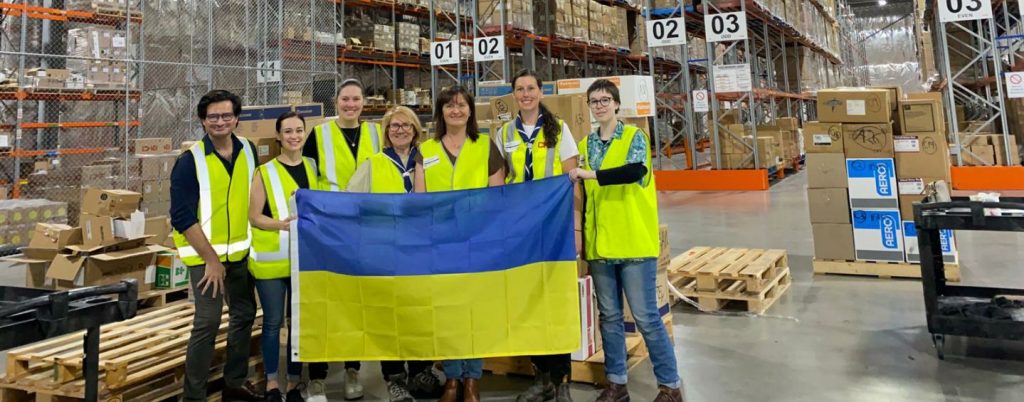In just one month, members of the Ukrainian community in Australia have obtained from Australian companies 90 pallets of urgently needed surgical, ICU and general medical supplies; organised the first airlift of these supplies through London; and are having them delivered directly into key Ukrainian war zone areas such as Kyiv and Kharkiv.
‘This is a fast-moving and rapidly evolving situation. We have successfully delivered our first load of aid – but much more aid is needed. We call out to Australian medical supply companies, hospitals, and the private sector to assist in donating high grade first aid such as tourniquets and bandages. You can be guaranteed the aid will get to Ukraine quickly and where it’s most needed,’ said Dr Paslawsky, Chair of the newly formed International Coordination for Medical Aid for Ukraine, a sub-committee of the Australian Federation of Ukrainian Organisations (AFUO).
‘The reason why we have been successful is that we threw the rule book out for traditional supply chain processes. We brought together a diverse group of volunteers (millennials, retirees, clinicians and business professionals), eschewed email and chains of command, and focused on creatively implementing quick, practical solutions to the severe shortage of medical supplies in Ukraine,’ said Dr Liz Paslawsky.
‘The supply chain was developed in Europe by newly formed partnerships, all committed to assisting Ukraine respond to the war. We decided on several supply chain routes, with different teams and different entry points into Ukraine. Local trucking companies, scout groups, Ukrainian community groups and NGOs have all been involved,’ said Dr Paslawsky.
‘Supplies are now moving through to those most in need in Ukraine. Fast-moving routes into the war zone areas were made possible based on professional connections built through travelling to Ukraine to work, as well as through family and friends.
‘In Ukraine, institutions such as the Ukrainian Catholic University in Lviv, have effectively re-mobilised to become humanitarian and medical hubs, and have also helped to distribute medical supplies around the country.
‘We were also very aware Russia is targeting humanitarian aid and cutting off transportation into Ukraine. We avoided any promotion about what we were doing, and utilised underground distribution networks,’ said Dr Paslawsky.
For more information about how to donate medical supplies click here.
Media Inquiries: Dr Liz Paslawsky – [email protected]
Nadia Mencinsky AFUO Media Liaison [email protected] mob: 0416 253 963


